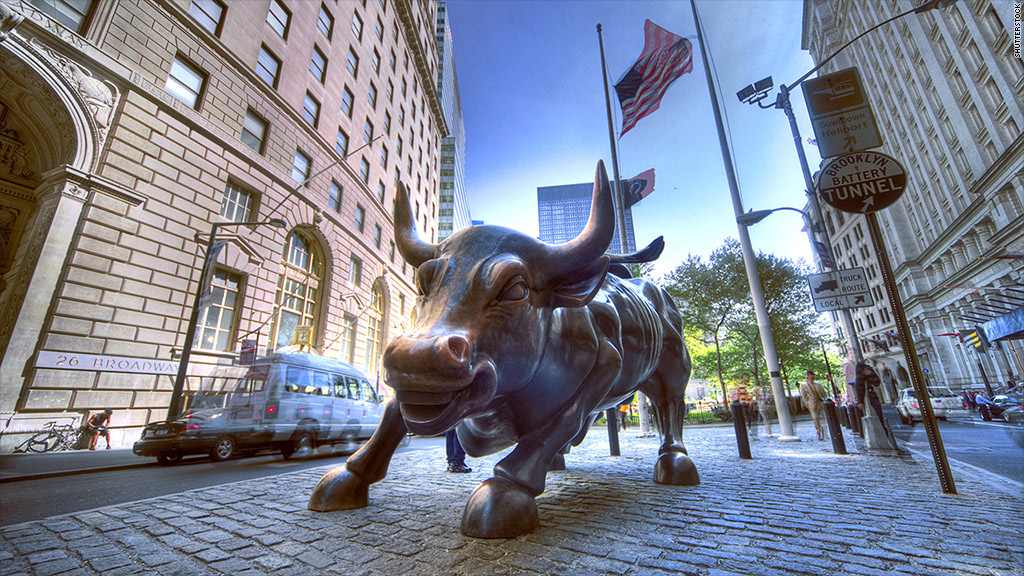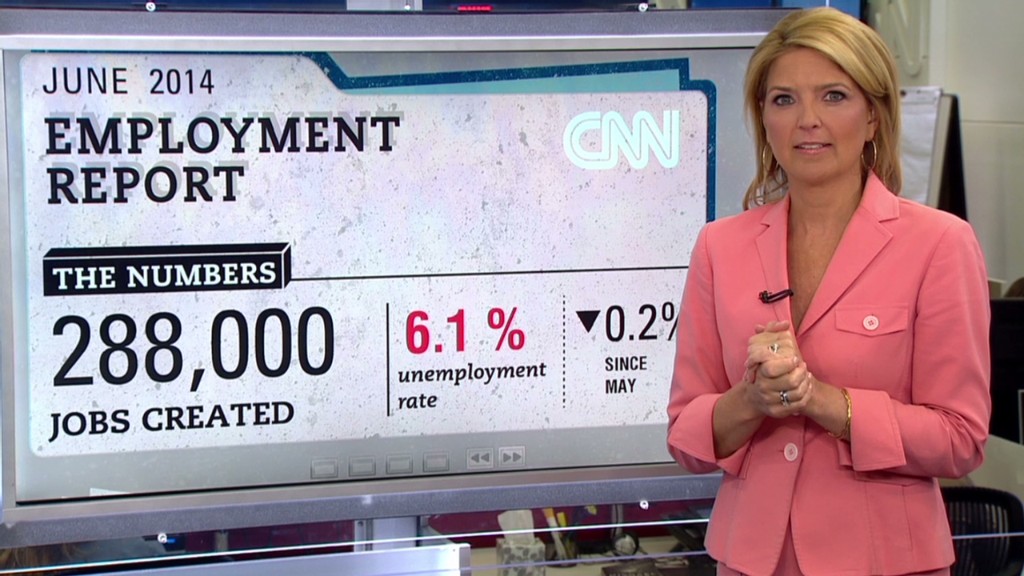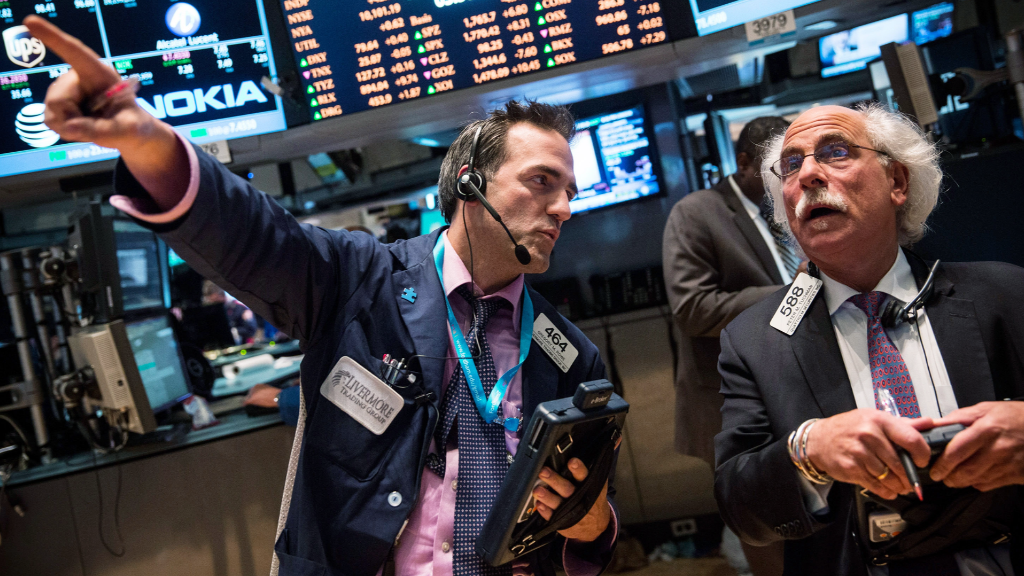
The party's not over for U.S. stocks.
Even though the Dow has soared above 17,000 Thursday, and the S&P 500 is already at levels most strategists weren't expecting until December, market veterans believe domestic equities are still the only game in town.
To put it bluntly, don't sell your stocks yet.
The alternatives just don't sound very appetizing. Bonds are also expensive, foreign stocks often experience more turbulence than American ones, and cash has been a losing proposition for years.
"I'm a huge believer in the U.S. equities market. We're seeing so many data points that really support Dow 17,000 -- and then some," said Peter Kenny, chief market strategist at financial technology firm The Clear Pool Group.
Related: Happy Birthday, USA! Have a hot dog (or 70)
Valuation jitters: Calls for the market to take a break have grown louder as the Dow and S&P 500 shatter record after record, making stocks more expensive along the way.
Yet stocks haven't exactly gone through the stratosphere this year. The S&P 500 is up a solid 7% so far this year, much more modest than the 27% surge last year.
One of the best gauges to see if the market is overvalued is the price-to-earnings ratio -- dubbed the P/E ratio for short. The S&P 500's trailing price-to-earnings ratio has climbed a healthy 33% since the bull market began in 2009. But that pales in comparison with historical norms.
The median bull market P/E expansion since 1928 of 66.7%, according to Bespoke Investment Group.
"It's hard to make the case the bull market is going to end this year or that we're poised for some massive pullback. Valuations are elevated, but not far from historical averages," said George Pearkes, an analyst at Bespoke.
Related: CNNMoney's Fear & Greed Index
In other periods when the U.S. has had such low inflation and low interest rates, valuations have been much higher than they are now.
There are also real signs that the economy has zoomed back to life after a weather-fueled contraction in the first quarter.
Pending home sales soared 6.1% in May -- the strongest gain in 2.5 years -- while new home sales surged 18.6%, a pace unseen since 1992.
Even the labor picture is looking much better. Including the impressive 288,000 jobs added in June, the U.S. has now added 1.4 million jobs during the first six months of 2014, the best growth since 2006.
Bullish feelings about the U.S. economy could be bolstered further by earnings reports this week from major companies like Alcoa (AA) and Wells Fargo (WFC).
Related: Highest July 4 gas prices in 6 years

Scant alternatives: Even if you're not sold on U.S. stocks, the alternatives don't sound great.
Take bonds, which shocked many on Wall Street by rallying in the first half of the year.
But this asset class carries real risk as the Fed moves closer to raising interest rates. There are few upside rewards to buying now.
"Our monetary policy, which is just so extraordinarily accommodative and unconventional, has altered the investing landscape. It's reshaped risk-and-reward profiles," said Kristina Hooper, U.S. investment strategist at Allianz Global Investors.
While many Americans scarred by the financial crisis have stayed in cash, that's been a losing bet as well. They not only missed out on the bull run, but were stuck with virtually no returns in their savings accounts.
According to Allianz, socking away $2.9 million in cash in 2007 translated to $100,000 in income through interest payments. Yet by the end of 2013, it would have taken a whopping $100 million to generate that same $100,000 of income.
Commodities are a great way for investors to diversify, but rarely should they be the biggest allocation for retail investors, especially amid relatively tame inflation.
Pearkes said it makes much more sense to find exposure to commodities by scooping up various sectors of the stock market. For example, the energy sector has soared 13% so far this year, doubling the S&P 500's advance.
The utilities sector, up 12% on the year, has also been a favorite proxy for investors who believe rates will stay low for longer. That's because lower rates make high-dividend stocks like utilities more attractive.

What about overseas? Some foreign markets have crushed U.S. stocks so far this year, including red hot ones like Argentina and Denmark.
But market veterans warn that going abroad exposes retail investors to currency risk, political headwinds and extreme volatility in some cases.
Related: 5 hottest stock markets in the world
For example, while Dubai's market has returned 17% in 2014, it recently tumbled into a bear market (20% below previous high) due in part to jitters about the company that built the world's tallest tower.
Foreign stock markets also often lack the transparency, rule of law and regulatory oversight that U.S. equities enjoy.
"I would take our capital market framework over any in the world," said Kenny.
Still, short-term U.S. investors need to be aware of downside risks in the short term, Hooper said. These include the chances the Fed hikes rates sooner than expected, another debt showdown in Washington and geopolitical crises in Iraq, Syria and Ukraine.
Investors with less than a one-year time horizon should consider rotating into more defensive stocks or even taking some gains off the table, Hooper said.
But for long-term investors, exposure to equities is a must if they want to reach their retirement goals.


